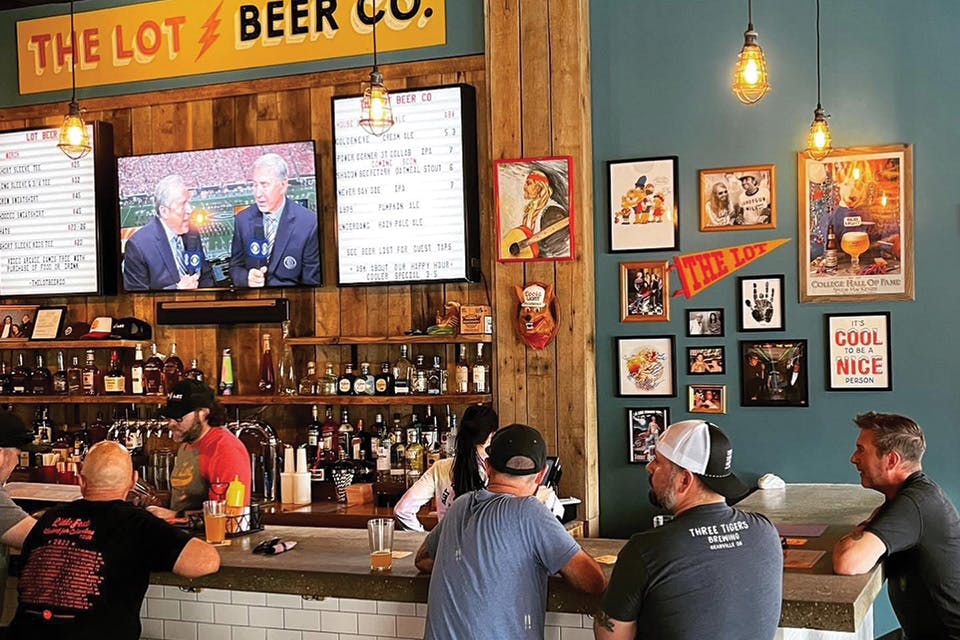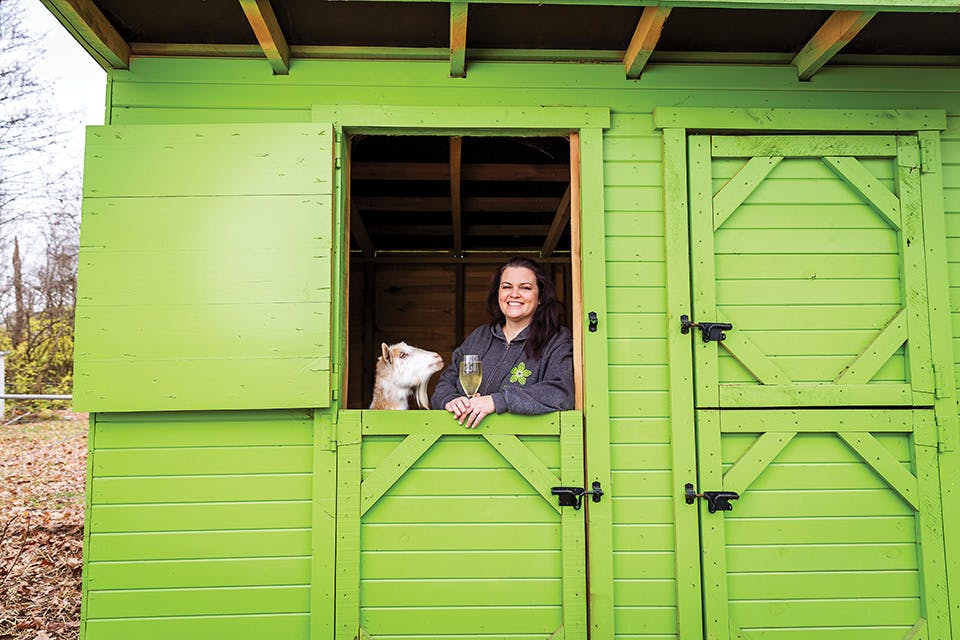Food + Drink
| Craft Beer
Owner Betty Bollas: Fibonacci Brewing Co.
Nature and math mix deliciously at this small brewery just north of Cincinnati that grows ingredients for its beers on its urban farm.
Related Articles

The Lot Beer Co. in Granville Blends Beer, Burgers and Vintage Vibes
This fun downtown spot feels plucked straight from the 1980s and ’90s, serving up burgers, hot dogs and a lineup of house-brewed beer. READ MORE >>

Visit Northeast Ohio’s National Park-Inspired Brewery
This Cuyahoga Valley-inspired spot located a short drive from some of Summit County’s most popular natural areas offers a great place to relax after a day of exploring. READ MORE >>

MadTree Brewery Goes Big with Nature-Inspired Parks & Rec
This outdoor-infused spot in the Cincinnati suburb of Blue Ash’s Summit Park blends craft brews, great food and inclusive design. READ MORE >>



